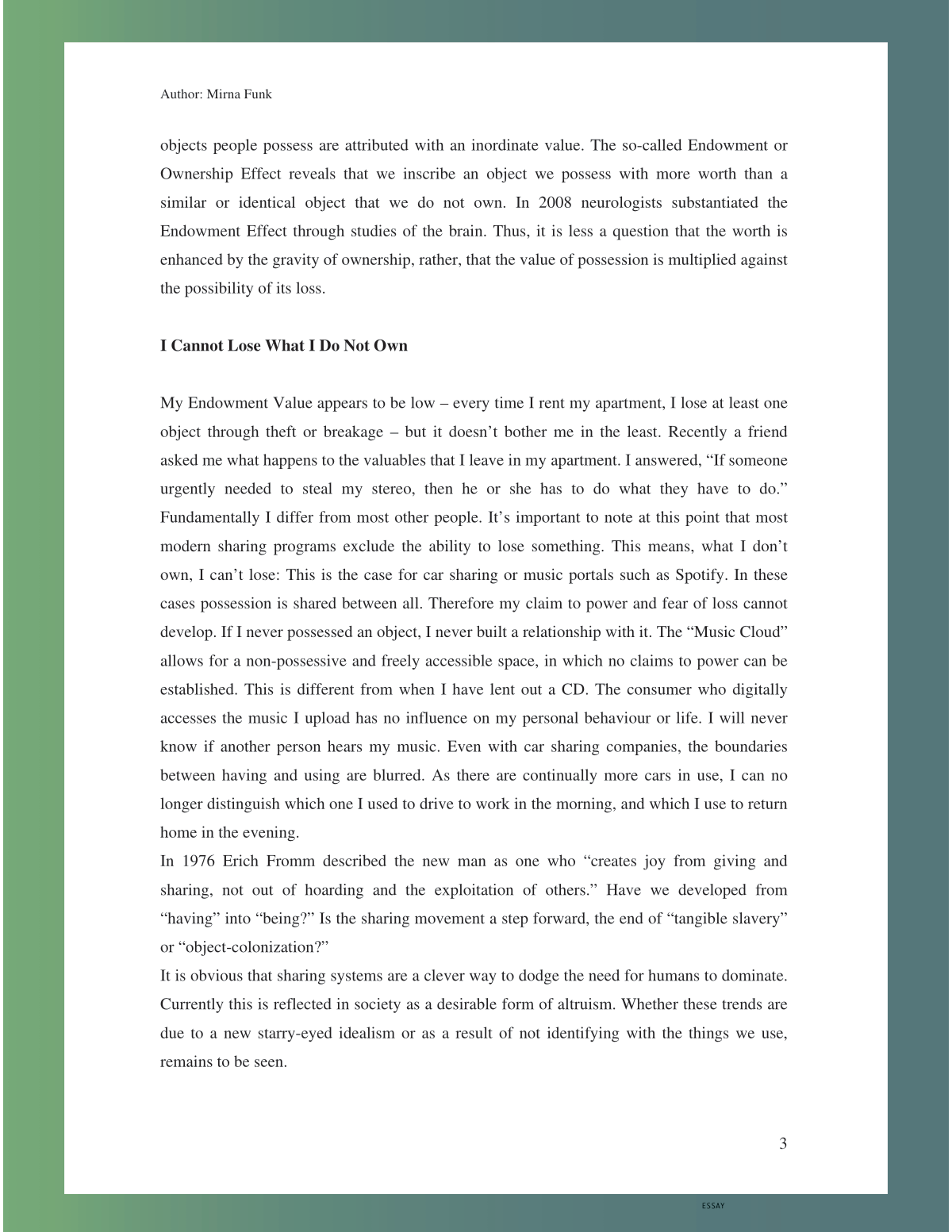ESSAY
Author: Mirna Funk
�
�
3
objects people possess are attributed with an inordinate value. The so-called Endowment or
Ownership Effect reveals that we inscribe an object we possess with more worth than a
similar or identical object that we do not own. In 2008 neurologists substantiated the
Endowment Effect through studies of the brain. Thus, it is less a question that the worth is
enhanced by the gravity of ownership, rather, that the value of possession is multiplied against
the possibility of its loss.
I Cannot Lose What I Do Not Own
My Endowment Value appears to be low – every time I rent my apartment, I lose at least one
object through theft or breakage – but it doesn’t bother me in the least. Recently a friend
asked me what happens to the valuables that I leave in my apartment. I answered, “If someone
urgently needed to steal my stereo, then he or she has to do what they have to do.”
Fundamentally I differ from most other people. It’s important to note at this point that most
modern sharing programs exclude the ability to lose something. This means, what I don’t
own, I can’t lose: This is the case for car sharing or music portals such as Spotify. In these
cases possession is shared between all. Therefore my claim to power and fear of loss cannot
develop. If I never possessed an object, I never built a relationship with it. The “Music Cloud”
allows for a non-possessive and freely accessible space, in which no claims to power can be
established. This is different from when I have lent out a CD. The consumer who digitally
accesses the music I upload has no influence on my personal behaviour or life. I will never
know if another person hears my music. Even with car sharing companies, the boundaries
between having and using are blurred. As there are continually more cars in use, I can no
longer distinguish which one I used to drive to work in the morning, and which I use to return
home in the evening.
In 1976 Erich Fromm described the new man as one who “creates joy from giving and
sharing, not out of hoarding and the exploitation of others.” Have we developed from
“having” into “being?” Is the sharing movement a step forward, the end of “tangible slavery”
or “object-colonization?”
It is obvious that sharing systems are a clever way to dodge the need for humans to dominate.
Currently this is reflected in society as a desirable form of altruism. Whether these trends are
due to a new starry-eyed idealism or as a result of not identifying with the things we use,
remains to be seen.







